What is the WHOIS?
When you purchase a domain name, ICANN’s registration policy requires that you provide valid information. For example, you must provide your: name, surname, mailing address, email address and phone number.
This information is stored in an international database called the WHOIS. You can view the PlanetHoster database on the following page:
https://www.planethoster.com/en/Domains/Whois
When you register a domain name, you can view information about the domain name holder.
Protection ID is optional, BUT…
You may have noticed that during the ordering process, PlanetHoster suggests that you protect your identity using Protection ID.
The cost is €6 or CA$9.60 per year. Is this a wise choice? Let’s answer this question together.

PlanetHoster Protection ID
What is Protection ID?
For most domains, such as .COM, .NET, .ORG, etc., the registries will publicly display the domain holder’s details.
Anyone wishing to access the domain holder’s details can do so with a few easy clicks.
They simply need to search for the domain in question in the WHOIS database, as explained above.
If you opt for Protection ID, the information transmitted to the WHOIS database when you purchase your domain name is made confidential.
What’s more, the PlanetHoster team will represent you in the event of a dispute with a third party.
For example:
| Domain WITHOUT Protection ID |
Domain WITH Protection ID |
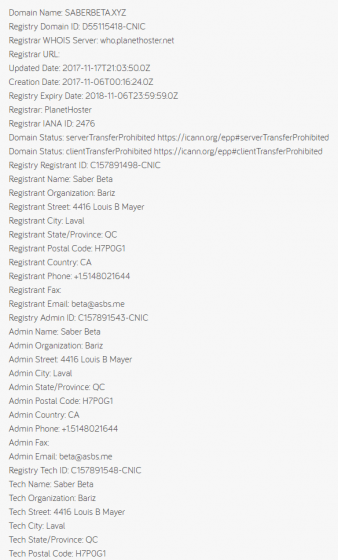 |
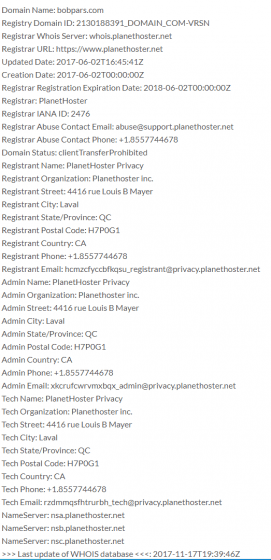 |
Please note that PlanetHoster offers free WHOIS protection for certain domains such as .FR and .CA.
As shown in the illustration above, the domain holder’s details are replaced by PlanetHoster’s details.
If you don’t opt for Protection ID during your order, your personal information will automatically become available to anyone who wishes to access it.
Here is a summary of the three main advantages of Protection ID.
- Security against fraud. If you keep your personal details confidential, you minimize the risk of an ill-intentioned person using your information without your knowledge.
- Unsolicited and unwanted calls are eliminated or reduced. If you keep your phone number confidential, you reduce the risk of being solicited via automated calls.
- Advertising Spam is eliminated or reduced.
Example of a fraud or scam
Scammers have become very sophisticated in the past few years.
1- Phone call/SMS
With your WHOIS information, they can access your telephone or mobile number (smartphone). They will then call you to try to obtain more information about you. For example, they might claim that they’re conducting a survey. Once they obtain your information, they can make banking-related phone calls.
Our colleague Myriam, a PlanetHoster sales consultant, ran a test to see how this plays out. Within a few hours, she received several phone calls from:
1-855-290-6592
1-262-646-0358
1-814-808-3262 (CIBC bank, please log in for more information)
and several phishing attempts via SMS.
This is what ended up in her emails:
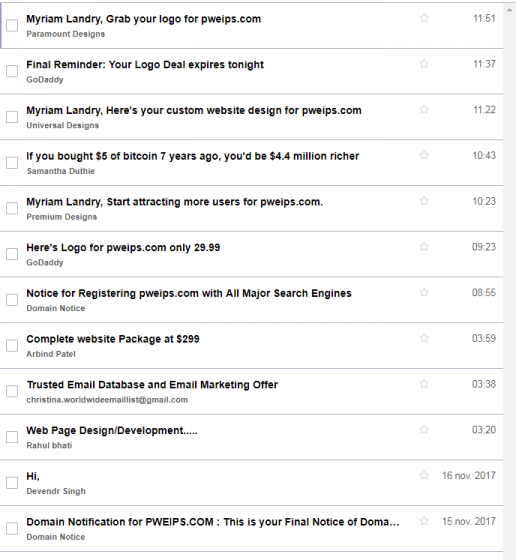
Email Spam – Myriam inbox
2- Phishing via postal mail
We all receive bills in the mail. Watch out for iDNS. They will try to coerce you into paying fees to keep your domain name.
Remember that all PlanetHoster payments are made exclusively via the secure Client Area.
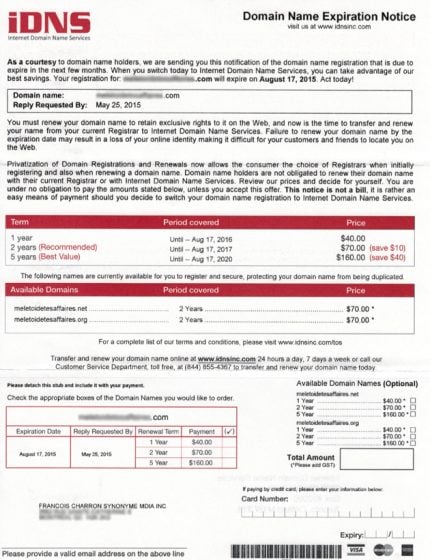
iDNS Scam
3- Email phishing
Scammers can easily find your email address and send you fraudulent emails or spam.
- For example, secure online payment will try to trick you with a suspicious email:
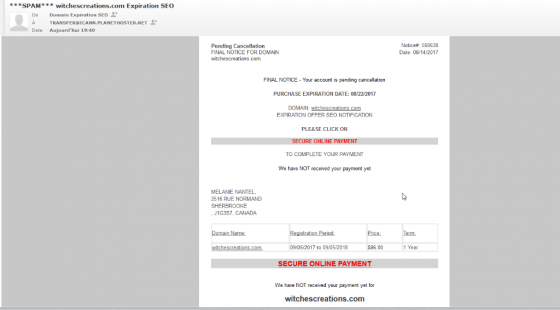
Secure Online Payment Email Fraud
- The new SEO trend has not gone unnoticed by scammers. “If you don’t complete your payment, your website will no longer be referenced…”
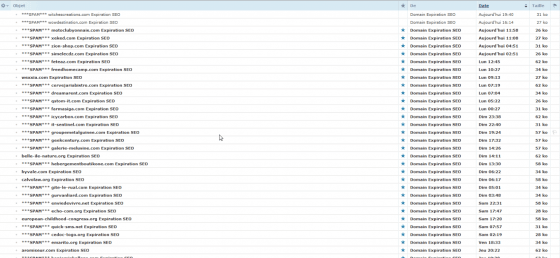
SEO Scams
- Finally, scammers may use the names of competitors. For example, here is a scammer who sent out an email using the names GoDaddy and OVH:
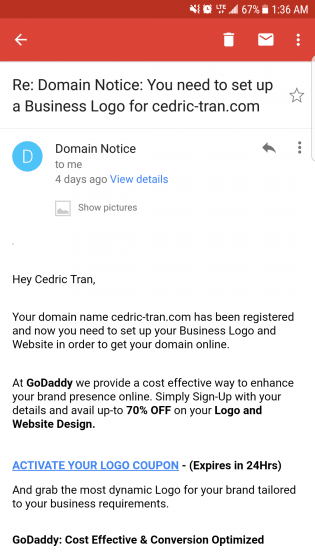
GoDaddy Fraud – Scam
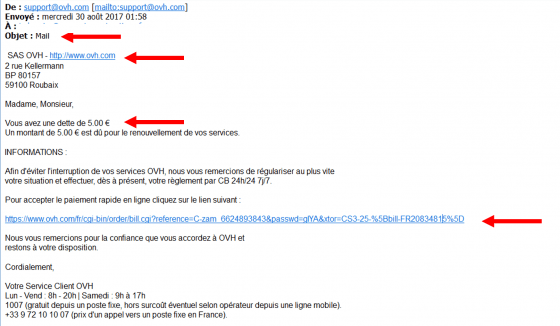
OVH Fraud – Scam
Conclusion
For €0.50 or $0.80 CAD per month, it makes sense to get protection from PlanetHoster. Our systems will filter out all phone scams, as well as mail and email fraud.
What’s more, our team is available at all times to advise you on the best security practices.